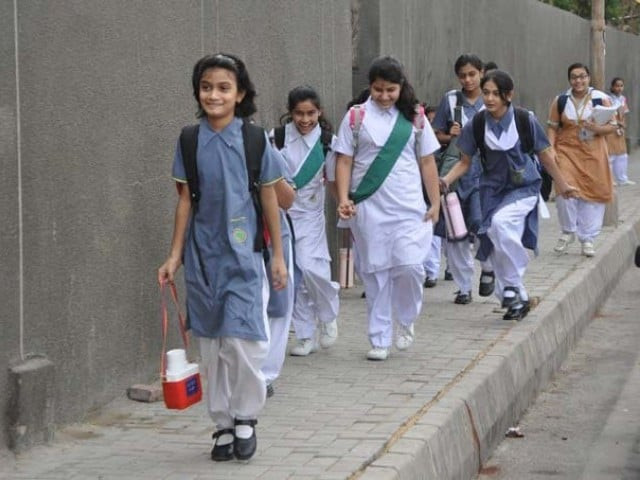PEIRA registers 428 private schools
Authority says only fresh cases are being inspected currently

Having been embroiled in litigation over its constitution and formation of rules ever since its creation, the regulator of private schools in the federal capital has finally started working, completing the registrations of some 428 educational institutions in the city over the past eight months.
In a statement issued on Friday, Private Educational Institutions Regulatory Authority (PEIRA) Chairperson Zia Batool said that from November 2019 to date, they have cleared a backlog of registration and renewal cases of private educational institutions (PEIs). Many of these cases were pending since 2016-17.
Moreover, Batool said that some 186 schools had volunteered to register with the authority.
Further, the authority said that it had reviewed facilities at schools and their compliance with the parameters set by the authority and those identified by the court and had directed as many as 470 schools to address their deficiencies.
The data further shows that around 80 per cent of PEIs operating in the Islamabad Capital Territory (ICT) fall in the less resourceful or low-fee category.
Private schools vow to follow SOPs
Given the large number of pending cases and the need to bring transparency in the registration process, PEIRA said that it has also developed a time-bound standard operating procedure (SOPs) for the swift processing of cases. This, Batool said, had helped the PEIs improve their standards.
Batool said that they were inspecting schools as part of the registration and renewal process. However, she said that the authority currently has a shortage of monitors and inspectors, hence it is being conducted in phases.
In the first phase, she said that they were only resolving fresh cases while renewal cases will be processed in the second phase.
To further improve PEIRA’s registration process, Batool said that a reliable and updated database of private schools is being developed in the federal capital through the conduct of geo-tagged surveys. These surveys, which also check the minimum quality standards in schools, are also being conducted in the remote and rural areas of the capital.
Moreover, the authority has developed a capacity building programme for academic staff of less-resourceful private educational institutions. The programme will help achieve the sustainable development goal.
Published in The Express Tribune, July 25th, 2020.



















COMMENTS
Comments are moderated and generally will be posted if they are on-topic and not abusive.
For more information, please see our Comments FAQ